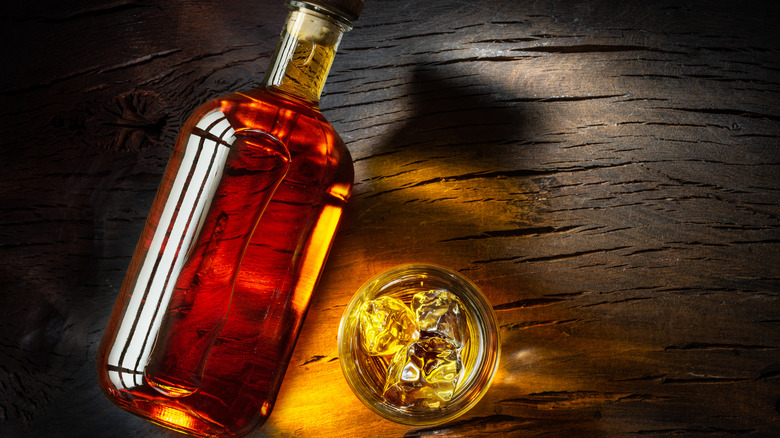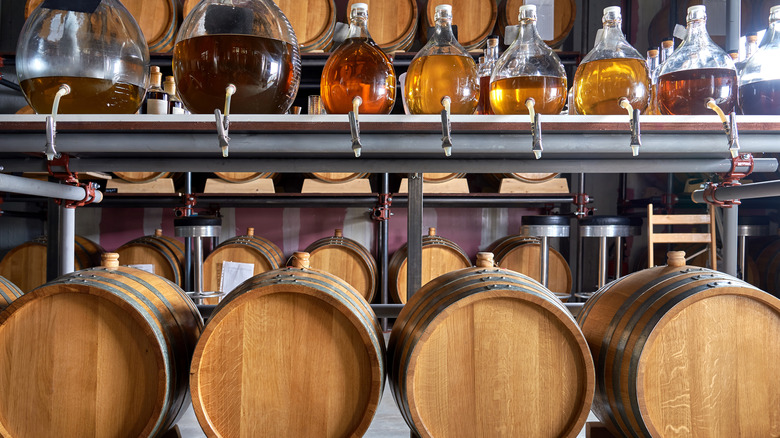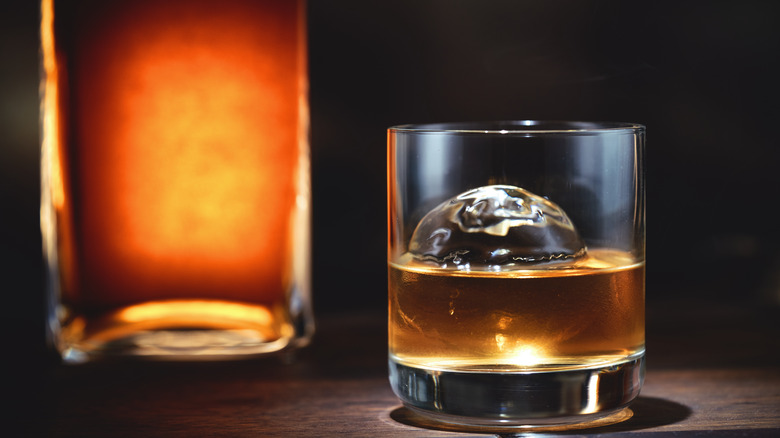How To Buy Bourbon Like You Know What You're Doing
Deciding which brand of bourbon to choose among rows of glass bottles filled with the popular spirit can be intimidating, to say the least. You may not want to spend a fortune, but you also want something that tastes delicious. Or perhaps you're seeking a nice bottle for a gift or special occasion, but spending a lot doesn't always guarantee the flavor you're after.
Food Republic consulted JoAnn Street, a Portfolio Ambassador for Wild Turkey, for her advice on how to buy bourbon like a pro. Before setting foot in a liquor store, Street suggests determining your budget, which doesn't need to be exorbitant. "There are many great whiskies out there that you do not have to pay an outrageous price for," she advises. While top top-shelf shelf bourbons — the highest quality and most expensive bottles, often literally kept on the top shelf in a bar or store — can be delightful, they're not the only option. Street recommends keeping an open mind to choices, regardless of their shelf status.
Bourbon basics
Bourbon is an American whiskey made with a mash bill of at least 51% corn, with varying proportions of corn, rye, and malted barley. It cannot exceed 160 proof, or 80% alcohol, at distillation and must be aged in new, charred-oak barrels. Additionally, it cannot be bottled at less than 80 proof, or 40% alcohol.
Bourbons can be distinguished by their flavor profiles, influenced by varying the proportions of the main ingredients. High rye bourbons increase the amount of rye to around 20-40%, compared to the typical 10%. Wheated bourbons replace some or all of the rye with wheat, while some craft producers introduce novel ingredients like millet and oats for four-grain, or alternative grain, bourbons.
A bottle of bourbon is often made from a blend of bourbons aged in different barrels, but single barrel or single cask bourbon is not blended, as each barrel imparts a distinct flavor. Cask strength, barrel strength, or barrel proof bourbons are more robustly alcoholic, as they are not diluted before bottling. Straight bourbon is aged for at least two years, although there is no official aging requirement for bourbon. Small-batch bourbon, a commonly used term, typically means only a small number of barrels were blended together. However, this term is not regulated, so its meaning varies significantly across brands.
Phone a friend if you're unsure
The shopkeeper or sales associate is your essential guide when purchasing spirits of any kind. JoAnn Street suggests leveraging their expertise as a resource. Getting their advice can make your buying experience much smoother. Don't hesitate to be honest about your level of understanding of bourbon, either — the salesperson is there to assist you. Sharing tasting notes and brands of bourbon that you have previously enjoyed also provides valuable information, helping the employee guide you in the right direction.
Street also recommends sharing the intended occasion for the bourbon. A light and sweet bourbon may be ideal for sipping straight, while a higher-proof selection might be better suited for cocktails, as the bourbon will likely be diluted with ice and other ingredients, such as in a bourbon sour cocktail recipe. Even if you're familiar with the bourbon aisle, engaging with the employee can be beneficial. They might know of a new bottle or special release that's perfect for a seasoned bourbon sipper.



